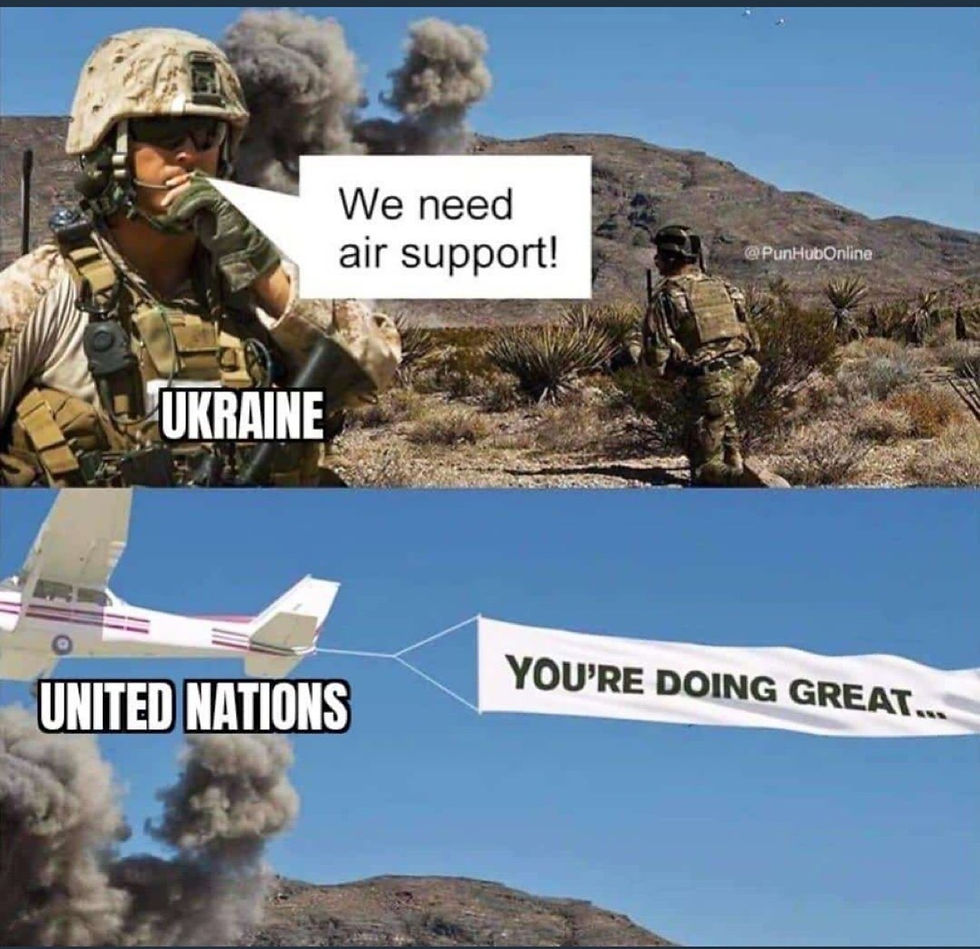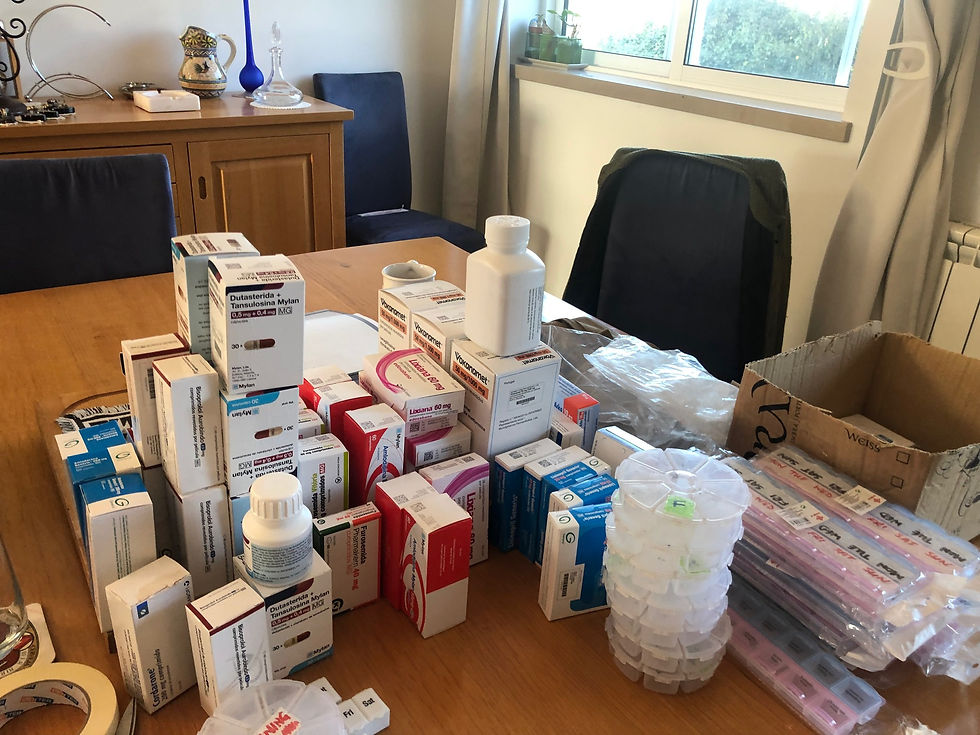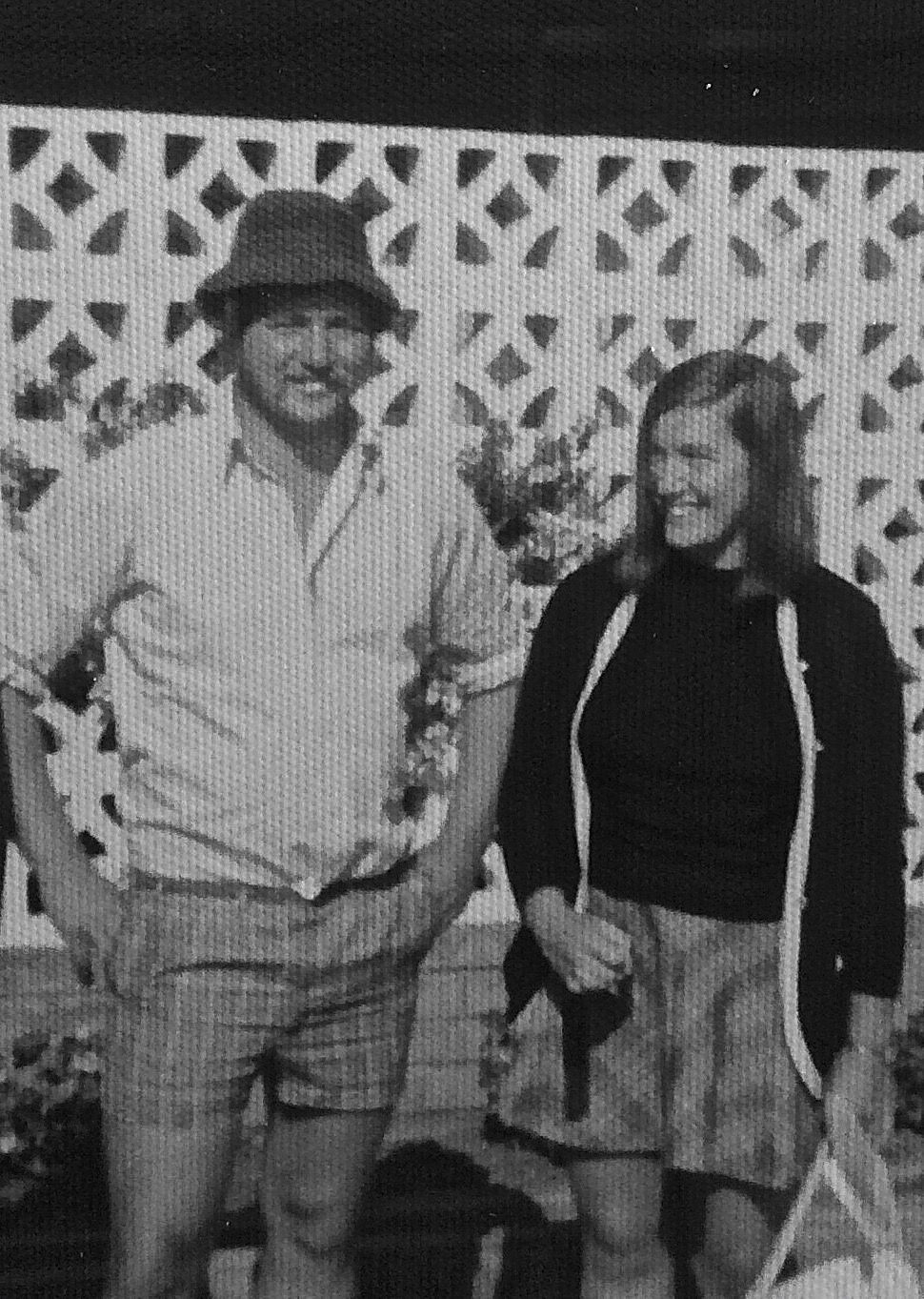
Oh for the first time the blog nearly did not appear this week. On Thursday evening reviewing my close to the last draft, I lost the whole bloody thing. I write it in Google Docs which on a daily basis seems to make it harder to open and edit with so much unwanted and unwarranted protection. Luckily my technical expert, Rozanne, recovered an older version so final touches today. Please excuse more errors than usual.
When the Russians started to run into some challenges on their so-called quick victory in taking Kyiv and the Eastern ports along with the other cities they put under siege in Ukraine, I predicted atrocities. I wish I had been wrong. Unfortunately, both sides will commit barbaric acts. At present, the Russians seem to be using it as a strategy to destroy the civilians’ morale.
“Throughout history when bullying dictators are given free rein within their own countries, they inevitable become threats to the security of the whole region, even the world.” - Peter McSporran
Why am I harping on about events in Ukraine in my blog? It is because I feel so strongly about the fact, despite historical proof of the dangers, we, yes, we all, allow dictators including in more recent times Hitler, Stalin, Amin, Mugabe and Bashar al-Assad to prosper without any censure until it is too late. In this modern world, our leaders have all become Chamberlains ably supported by the so-called ‘do gooders’, ‘greens’ and ‘looney left’. I see myself as a liberal-conservative. Is that possible?
War is not some soldiers or tanks firing away happily at each other from a distance as in the movies. War includes the child sitting next to its raped and murdered mother, a family viewing the mutilated body of a brother or father probably the family breadwinner dead because he is over sixteen with the ability to take up arms. War is a family sitting outside a destroyed home with all their worldly belongings ransacked with no answer for their future. Those of us who have seen this understand, I fear the modern world does not despite what is put on social media. What the videos cannot do is share the occupying smell of fear, death, decomposition, blood and shit. Even with their troops in situ, the UN seems to be immune to these tangible experiences felt only by the man on the ground. New York is far from the battlefront or the genocide.
Where armies are poorly led, coupled with impressed (conscripts) poorly trained troops discipline is always a challenge. In days gone by the savagery of war is seen as barbaric to us as we reflect on history. The excuse then was this was before civilisation and probably because the armies were poorly paid, soldiers were almost seen as expendable by their leaders and forced to live off the land facing death if they refused to fight. Unfortunately, today is no different.
“Human nature has a very thin veneer of respectability hiding the darker side of what we are all capable of doing in times where we witness and experience the unthinkable savagery of others.” - Peter McSporran
If you do not have a strong command structure in an army, especially at field level, along with poorly trained and badly equipped soldiers who are fighting under duress in a war they see is not essential for the protection of their own nation or, in their eyes, of little purpose, then there is going to be trouble. Both for foe and ally. Frustration, fear of the unknown, both the mission and the end game undetermined against a strong enemy which is totally different to what was expected will bring out the worst in these troops. Often mercenaries, such as the Wagner Group, will be brought in to set the bloody trend.
Now the West has called Putin a war criminal which they cannot retract. What has he to lose now? Perhaps this will give him more of an incentive to keep on fighting to claim some form of victory despite the losses and bloodshed on his own side. Russia certainly did not expect to lose, hence the corpses or their earlier misdeeds still in evidence even weeks later. He must realise he is a pariah in most of the world. Once a reputation and image of being a cavalier tough guy, a tiger wrestler, a macho-man is now; an irrational butcher and a bully. Killers and oppressors are never tough men, they are the epitome of cowardice. He now has nothing to lose but for his survival, he will have to offer his people some form of perceived victory.
“Bullies and killers will only stop when they are brought to book either by society or the law. In Putin's case, it will have to be international law, as Putin's own constituents have no access to the truth and still view him as a hero.” - Peter McSporran
In my mind, the West must stop with the words and now actively support Ukraine to ensure victory and bring to justice the perpetrators. Otherwise what is about to happen will be on all of our hands. A prolonged war, many more atrocities, probably on both sides, and hunger in the most unexpected places in the world.

Meanwhile, it is clear Germany and France, although uttering strong words, are unwilling to take definitive action or cut off oil, gas and coal purchases from Russia.
“The EU’s member states have paid Russia €35 billion for energy since it invaded Ukraine — while sending only €1 billion in aid to Ukraine.” - Andrew Neil
I must admit I was and am a believer in free trade, but as we learnt in Rhodesia it is critical to be self-sufficient where possible in strategic commodities like energy and food. Europe could be self-sufficient in energy but has been led by the looney left or illogical green lobby in recent years. Even today they are lobbying on Tower Bridge to stop the use of fossil fuels. I wonder who employs their leadership?
“The public in the UK should bring the ‘green lobby’ to account. Even now they are demonstrating against oil while their elderly freeze without heating.” - Peter McSporran
There is no doubt we have to deal with the issues affecting our planet be it climate, pollution of our oceans and air or the overexploitation of the world's natural resources. This does not come cheap, as neither will food if we want to maintain as much of our independence as feasibly possible. It is already going to cost us a lot just to get some back.
“When the hand that feeds you is not a friend, food, or even manufactured goods and energy, becomes a tool of oppression in the hands of those that seek to hold power over us as individuals or nations.” - Peter McSporran
That was Mugabe's favourite tool against his own people.
In Rhodesia, we were self-sufficient in most things except for petroleum products. For many years I was happy to do without a Mars Bar, Scotch whisky or good wine. Maize porridge replaced my oats and your ten-year-old car kept going for another ten. I doubt the West will have the appetite for this, hence the reluctance of Germany and France in cutting off the energy and grain from Russia. Nobody is talking about grain exports from Russia, too many middle eastern countries would suffer. Watch out for next year, it will be tough to source wheat from Russia and Ukraine, especially in those third world countries that rely on cheap grain imports. Not looking good next year. Russia and Ukraine account for close to 30% of the world's internationally traded wheat.
Getting back to atrocities in Rhodesia, we had a very disciplined, well-trained army with most territorials happily fighting alongside regulars and vice versa in a common goal; the defence of their country. Strict discipline was always instilled in us. I did come across atrocities, by far the worst always carried out by our enemies against their own people or missionaries. Unfortunately, civilians in a war zone always suffer casualties. Crossfire sometimes, or a curfew breaker walking into an ambush. Yes, we did lay mines in the cordon sanitaire killing those travelling to Mozambique to join the enemy. What was, and is as seen in now in Ukraine, were atrocities directed against non-combatants by the terrorists for no reason other than revenge for their own situation. The terrorists would indiscriminately lay landmines on public roads or intimidate the population to their cause. The worse the atrocity, the more effective seemed to be the guidelines. This was often the case with unbelievable cruelty being inflicted as I personally witnessed. We were not without guilt laying mines in Mozambique but directed at military targets.
I am not naive enough to not admit that some of the methods used by SB (Special Branch) were unacceptable with torture used by some. I am unsure how many people lost their lives through their actions but certainly, there was no mass action and it was certainly outside of any policy. There are always human psychopaths in any army. Any suggestion of using unnecessary force was investigated immediately, sometimes instigated only on rumour. There are also always hotheads but these imbeciles are easily dealt with within a well trained and disciplined army. Of course when atrocities such as random killings, torture and rape become a political tool then that is a totally different ball game. Our enemy was trained by the Chinese and Russians. So perhaps it is part of their training curriculum still now?

If the West does not up its game there are a lot of innocents yet to die. Utterances of horror will not help them. Food and heat will cost more but you will still have your life unlike many who will not.
Closer to home we are all aware of the killings that happened post-independence in Matebeleland. These massacres of 20,000 Ndebele civilians were under the guise of an operation known as the Gukurahundi (the early rain that washes away the chaff). Rape, torture, mass killings became the order of the day as Mugabe's party subdued his old ally Josiah Nkomo’s people. The 5th Brigade carried out these atrocities having been trained by the North Koreans. Nothing was done by the international community to deter it. My question is this; surely the British Military Assistance and Training Team (BMATT) training the rest of the Zimbabwean army must have known all about it? Was it to Britain's benefit to ignore this genocide? Whatever, Mugabe got off with it, will Putin also for political expediency?
Healthwise I am still monitoring my diet with a much better-behaved stomach. I will try to introduce milk next week hopefully followed by yoghurt and cream on my porridge. It looks like one of the medications which I have reduced was the cause.
1975
Following the Christmas and New Year call up of 1974/75 on returning to the farm I moved onto the recently purchased Wild Duck Farm to cure the growing tobacco crop left there by the previous owners, du Toit. I knew nothing about tobacco and David du Toit wanted to be off the farm as quickly as possible so it was a sharp learning curve. I now had to get up a couple of times a night to check the barns. In fact, knowing very little I initially over-committed to this and it was not long before I became a zombie during the day. Despite this, like all those who have cured tobacco, I came to love the oaty smell of freshly cured tobacco. All the modern forms of curing today to some extent reduced this wonderful unforgettable odour. Maybe it was because you actually had to go into a conventional barn to check the temperature and humidity. Tobacco dropping on the floor had to be removed immediately as the hot flues would soon set it alight. Barn fires I would say could be a measure of management, some farms were more prone to them than others. We had a very light crop as David had lost interest, but the quality was excellent selling above floor average.

I now found myself going out socially more often with Mike Belinsky and his fellow students. I soon found myself courting his sister Diane who was studying at Speciss College at that time. She improved my catering on Sunday nights with a number of Gwebi students joining us for food and drinks. The house also had a large swimming pool, a cottage handy for the occasional overnight guest and a wonderful lychee tree. James Scroggie, our assistant preferred the loquats which were found all around the farmyard. Maybe the fruits and swimming pool attracted the now more frequent lady visitors, not me. It was not long until Diane established herself as ‘the one in charge.’
Call-ups were coming quicker and no sooner were we home, we received our new call-up papers. For the rest of that year, I found myself doing call-ups in the Northeast from Mount Darwin down to Mtoko and Mudzi in the east. Contacts were increasing. I still found myself unsettled and to this day feel I let the Smith family down during that time. I was also keen to farm in my own right and with a steady girlfriend, I felt the sooner the better. Ambition is a great driver. I had it in my mind I needed to learn about irrigation to mitigate against the all too frequent droughts and started to look around for new opportunities which included irrigation farming practices. I think I only went for two interviews, one in Mutorashanga and one with the Edwards in Enterprise. The Belinsky family opened their doors to me and I was able to have many a wonderful meal provided by Isobel Belinsky while I discussed my plans. On Derek’s advice, he suggested I went to work for the Edwards, Liford being a friend of Alistair Smith, my boss's son. I accepted the job they offered, the plan being when I was on call-up Liford, the son would be at home and vice versa when he was in the bush. His father, Les, was still very active and kept an overall eye on me in Liford’s absence. Of course, it was not long before our call-ups ran into each other, I hardly saw Liford during the two years I worked there. When I moved I first lived in the old main farmhouse at Insha Allah, a large house with wooden floors host to billions of fleas and an outside kitchen. Outside kitchens on farms in Zimbabwe were very common in those days. Despite the war, our domestic worker would bring me tea to my bedroom before first light. Us colonials; tea at first light and dinner served promptly at seven in the evening. To enable this they would carry a key which unfortunately would lead to the death of some farmers.
At Insha Allah, I learned about potatoes, wheat, soya and to a lesser extent onions. An old Scotsman called Bert Dodds grew the onions, also strawberries and pigs on the farms. Did I eat strawberries, to this day one of my favourite fruits? Bert reluctantly shared his farming and fishing secrets being a wonderful character who insisted on using a five-tonne truck as his farm pick-up. One of my first tasks was to assist in building a massive dedicated onion drier to enable us to supply the onion market throughout the year, especially at the time of peak prices which was during the rains. Les, a stout supporter of the ruling Rhodesian Front Party never asked for Liford and my call-up deferment even at critical times. He was convinced we were winning the war. Roly Davies, our commanding officer, had his ear and it was from him I learnt that he was requesting my presence more often than was required.
I see I have exceeded 2,000 words so will drop Mozambique travels until next week. I will try not to
mention the Ukrainian war also next week.

Disclaimer: Copyright Peter McSporran. The content in this blog represents my personal views and does not reflect corporate entities.
Comentarios